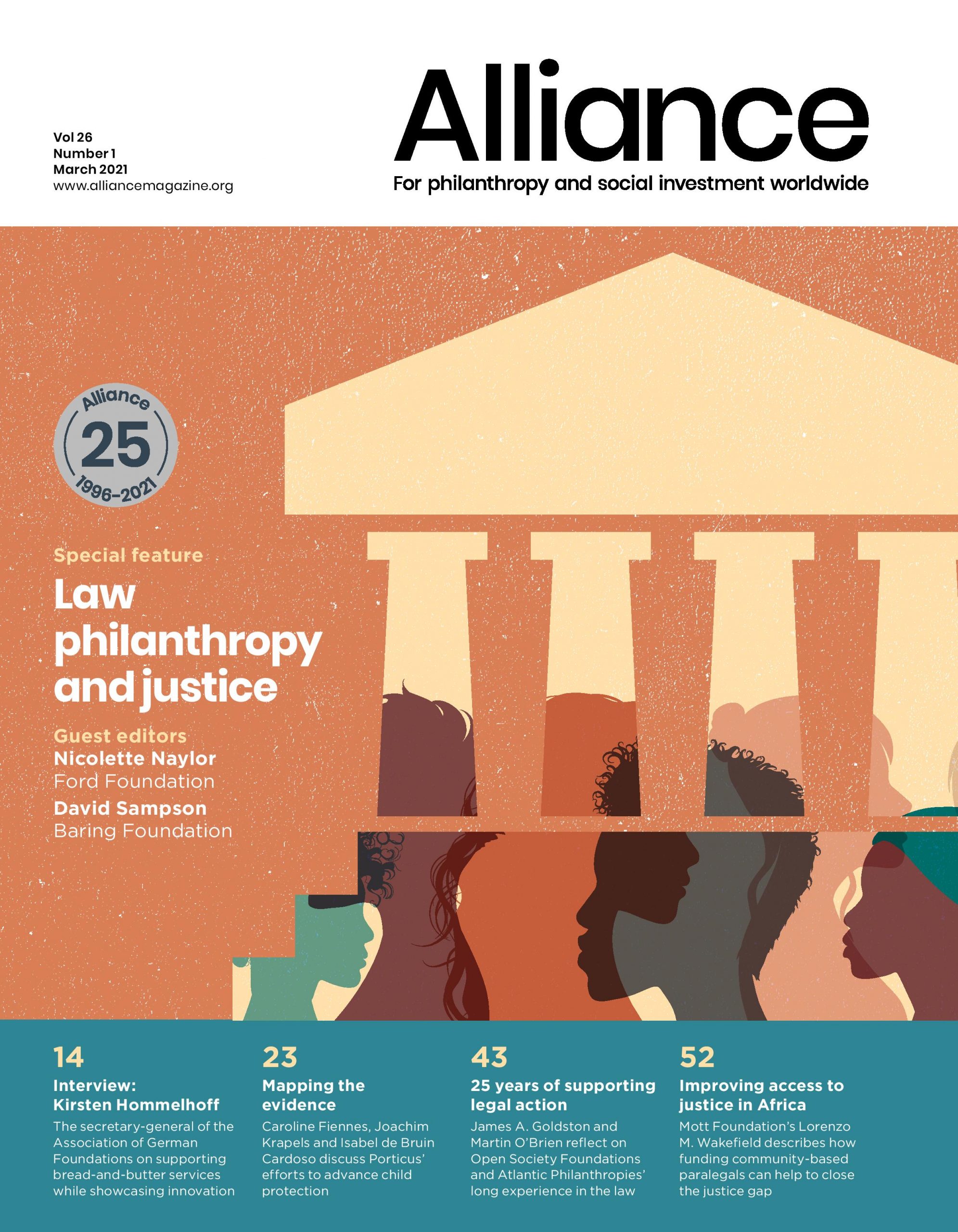Few practices have incurred more odium than slavery, yet it persists. Building a philanthropy-backed sustainable litigation ecosystem is key to ending it for good
More than 40 million people live in slavery today – where a person is exploited for sex or labour, and controlled by threats, violence, coercion, deception and/or abuse of power according to the International Labour Office[1]. They are forced to work in dangerous and punishing conditions – to make bricks, peel prawns, mine tin and gold, pick cotton and weave carpets, and much more besides. It is a crime that requires a legal response but although national laws prohibit and criminalise slavery or create civil means to pursue its perpetrators, these mechanisms are often poorly enforced and the organisations seeking to use them are poorly resourced. As a leader in the global movement to end modern slavery, the Freedom Fund sees the law as a powerful tool to transform the systems that enable modern slavery to persist.
Lawsuits against corporations for human rights abuses in their overseas operations involve complex areas of domestic and international law.
Our Legal Strategies initiative seeks to strengthen existing legal frameworks against slavery while supporting the development of new avenues of accountability. A key feature of our grantmaking is a focus on corporate accountability. Companies may be implicated in the use of forced labour in their business operations and supply chains, but because such exploitation often happens overseas in countries with minimal protection and lax enforcement, they are able to operate with impunity. Our strategy therefore aims to create targeted, coordinated and multi-pronged legal pressure on corporates to address modern slavery, using the deterrent effect of litigation to compel businesses to change their practices.
Subscribe now from only £45 a year!
This article is only available for our subscribers
Existing users can login here





